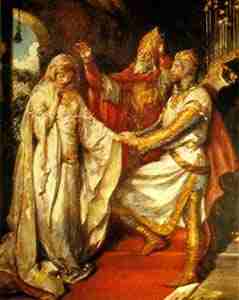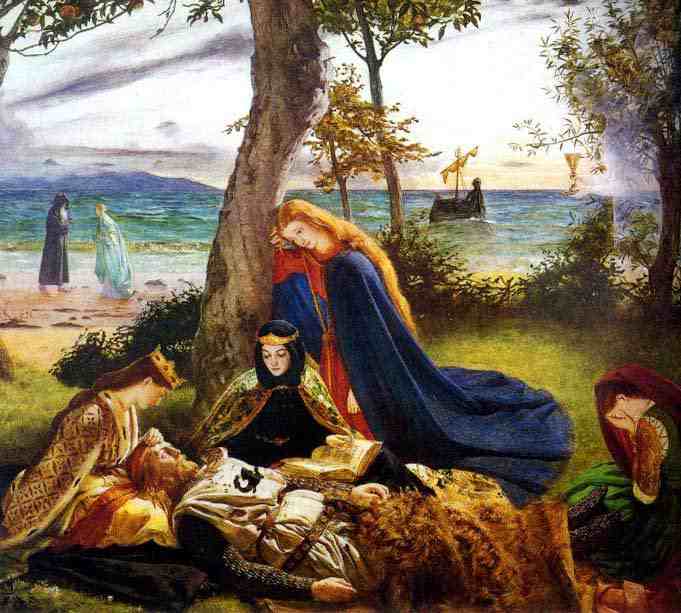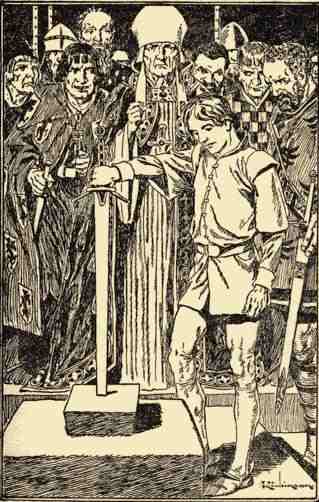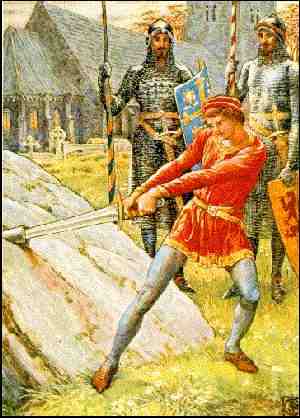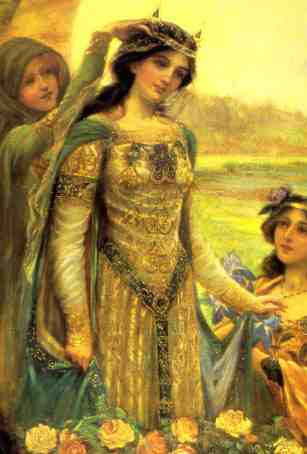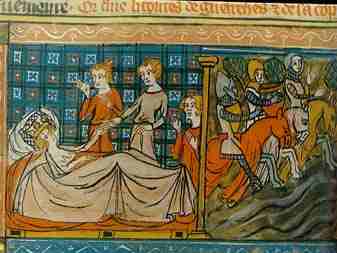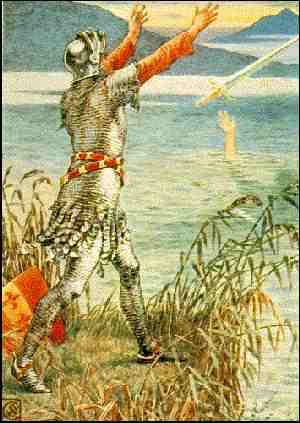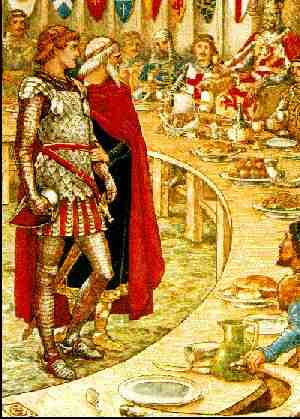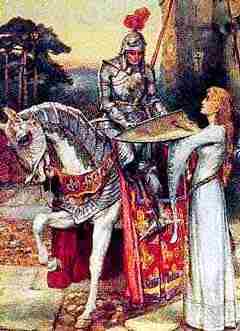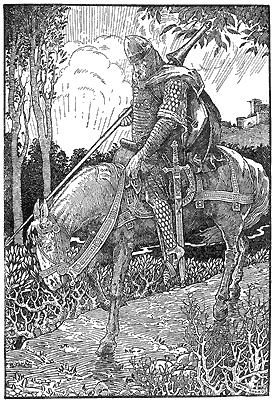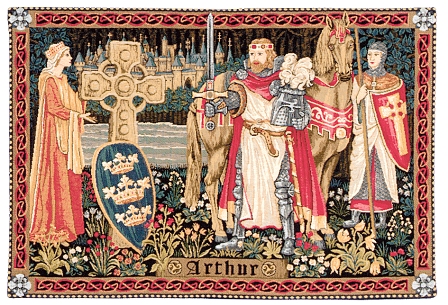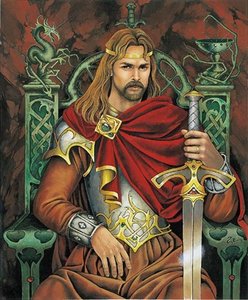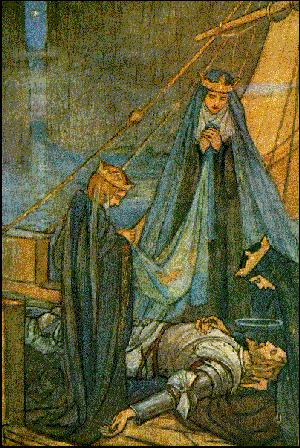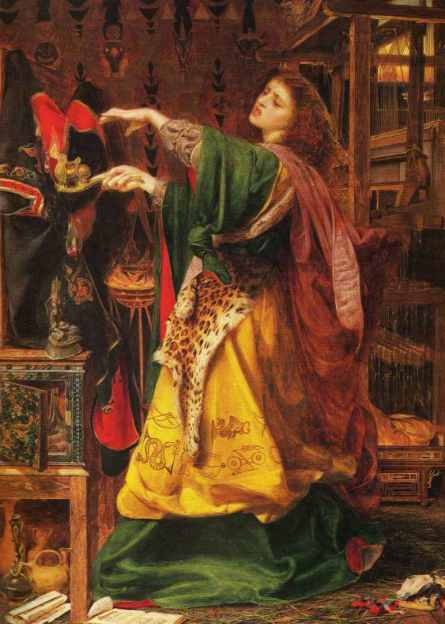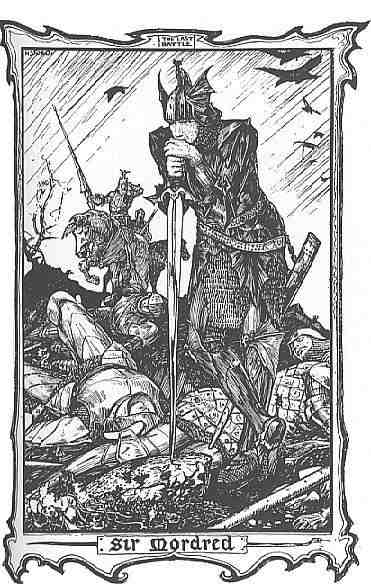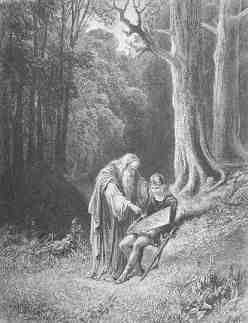AVALON
The Theosophy
King Arthur Pages
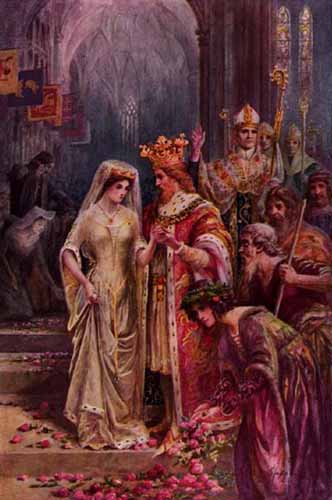
King
Arthur’s
Marriage
to Guinevere
The Saxon Invasion of
Traditionally,
the first Germanic military force arrived in
When the
government failed in their agreement to supply them, thesetroops revolted. This
revolt touched a significant part of the country. Then, the first settlers
invited their relatives from overseas to join them. At the beginning of the
sixth century, the Germanic peoples rapid spread through the country was
checked for a time by the British, but by the mid sixth century they started to
expand again. By the time of Augustine's arrival, they controlled much of the
lowlands and were expanding to the north and west.
The Celtic
peoples used the name "Saxon" generically to describe all of the
Germanic people with whom they came into conflict. While this likely indicates
a heavy proportion of Saxons in the early raids and settlement, many other
tribes were involved. Significantly,
Gildas writng
in 540 CE described the breakdown of order after the withdrawal of Roman
forces. Scots and Picts on the former frontier raided in
The British
leader Vortigern whom Gildas called a "proud tyrant", arranged for a
Saxon warband under Hengest and Horsa to settle in the country as federates for
protection against the Scots and Picts.
Nennius
writing in 800 CE implies that the government officials who hired the Saxons
not only feared the Scots and Picts, but also the Romans in
When hard
times came and the government was not able to meet its obligations to the
Saxons, they revolted and ravaged the countryside. Under the leadership of
Ambrosius Aurelianus, the British eventually fought back and reached a
stalemate after a battle at
Ambrosius'
likely power base was Wiltshire where the place-name Amesbury suggests
"stronghold of Ambrosius". At the time Gildas was writing in the
540s, he felt that this peace was threatened. The capture of Old Sarum by
Wessex in 552 may have ended Gildas' period of peace.
Continental
evidence suggests a reverse migration of Germanic people out of
Gildas made no
mention of the British hero Arthur. Since his battles are reputed to have taken
place during this time, Gildas should not have ignored him if he had been as
famous as indicated by Nennius and later Gregory of Monmouth.
The legends of
Arthur appear to have developed out of late Welsh legends that suggest a
British commander called Artorius won some repute against the Saxons
Theosophy
Avalon

King
Arthur &
The
Round Table
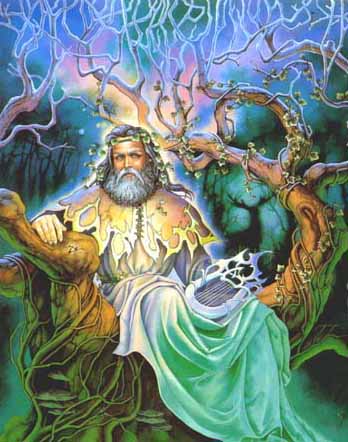
Merlin
& The Tree of Life
Merlin the Magician
Born circa 400 CE ; Welsh: Myrddin;
Latin: Merlinus; English: Merlin.

The
Holy Grail
The Theosophy
King
Arthur Pages
____________________
General pages
about Wales, Welsh History
and The History
of Theosophy in Wales
Theosophy links
The Most Basic Theosophy
Website in the Universe
A quick overview of Theosophy
and the Theosophical Society
If you run a Theosophy Group you
can use this as an introductory handout.
Independent Theosophical Blog
One liners and quick explanations
About aspects of Theosophy
H P Blavatsky is usually
the only
Theosophist that most
people have ever
heard of. Let’s put that
right
The Voice of the Silence Website
An
Independent Theosophical Republic
Links
to Free Online Theosophy
Study
Resources; Courses, Writings,
A selection of articles on Reincarnation
by Theosophical writers
Provided in response to the large
number of enquiries we receive at
The Voice of the Silence Website
The Spiritual Home of Urban Theosophy
The Earth Base for Evolutionary Theosophy
Theosophical
Glossary
Published
1892
A
B
C
D
EFG
H
IJ
KL
M
N
OP
QR
S
T
UV
WXYZ
Try these if you are looking
for a
local Theosophy Group or Centre
UK Listing of Theosophical Groups
Theosophy
House
Arthurian Picture Gallery
Arthur
Marries Guinevere
Death
of Arthur
Arthur
draws the Sword from the Stone
Arthur
draws the Sword for the Stone
Guinevere
The
Lady of the
Guinevere
lends her ring to Sir Lancelot
The
Round Table
Theosophy
House
Sir
Bedivere returns Excalibur to the Lake
Sir
Galahad brought before the Round Table
Lancelot
and Guinevere
Sir
Mordred
King
Arthur
King
Arthur
Death
of Arthur
Morgan Le Fay
Theosophy
House
Merlin
instructs the young Arthur
Merlin
instructs the young Arthur
Theosophy
House
